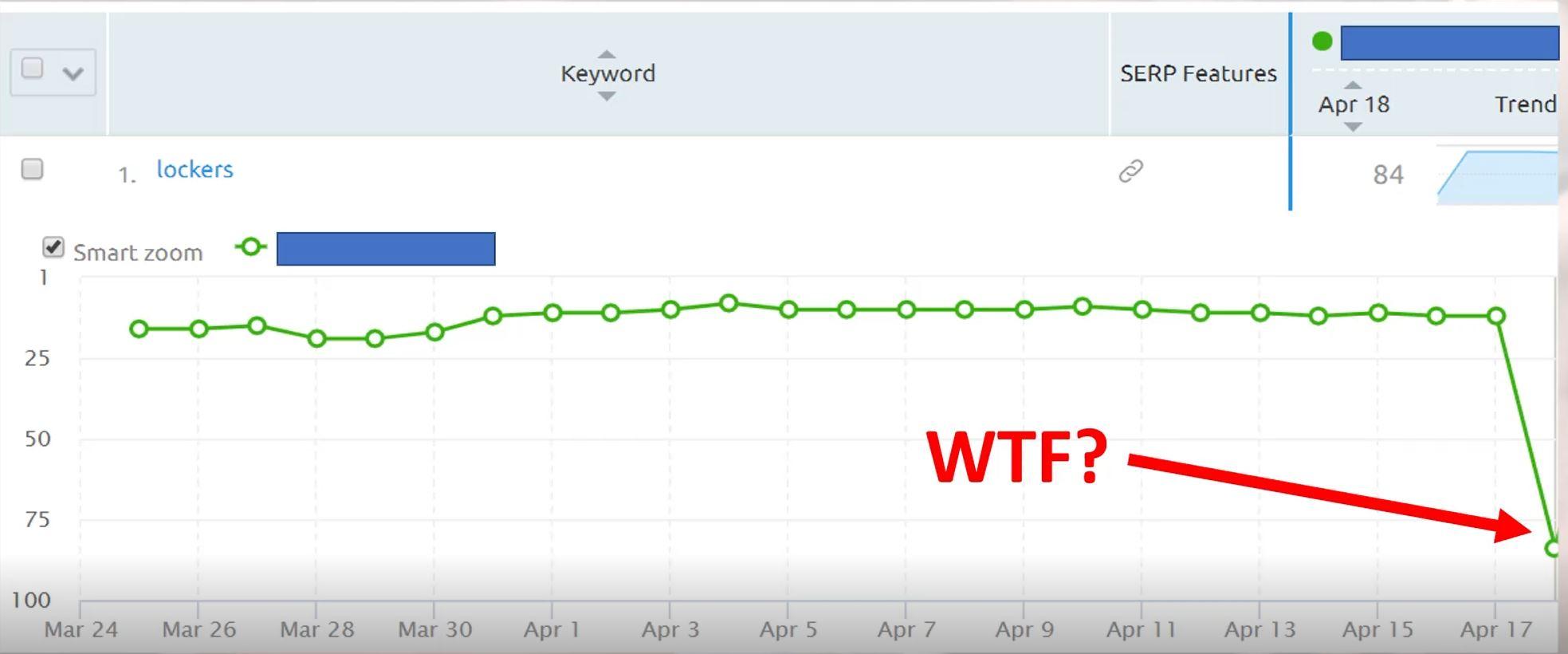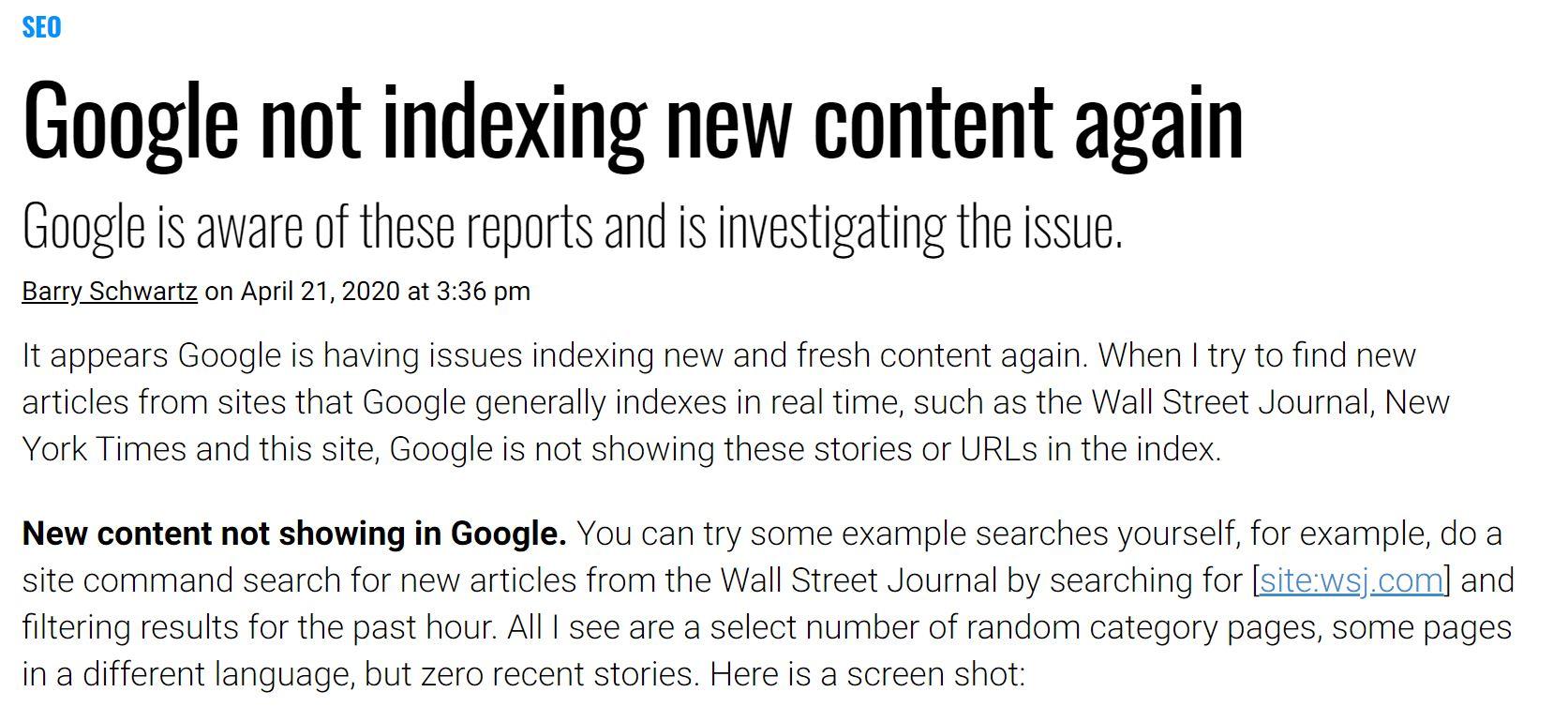Tom’s BrightonSEO talk in July 2021 offered some brilliant advice on how to react when you notice that your keyword rankings have fallen significantly.
Sadly, he wasn’t offering a magic potion to make them reappear, nor could he share a way to stop this ever happening to you at some point, but he had some calm and process driven ways to diagnose and solve the issues that we thought we’d re-share on our blog.
The focus of his talk centred on personal experience last year, whilst working for an ecommerce client. You might say he’s still slightly scarred from the experience, but has created some valuable steps should this ever happen again…

Retrace your steps
Review what actions you had taken prior to when the rankings had started to fall away.
In Tom’s case, on this particular project he had:
- sent on-page suggestions to his client,
- the client had uploaded them,
- as per our process the pages were requested for re-indexing via Google Search Console,
but then they disappeared from the search index…
At any one of these stages, something may have gone awry, but he needed to dig deeper and analyze each of these stages in more detail to know what aspect needed fixing.
Step 1: Were the on-page optimisation suggestions good?
i. Before jumping straight in, it is wise to check whether the whole website has been deindexed or just specific pages,to establish whether this is an isolated incident.
In this example it was just a single page.
ii. So the next mini-step was to check the amount of times the optimised search term(s) featured in the content, and more importantly comparing it to the number of times it’s been used by other websites ranking on the first page. This is to check whether the page has been over-optimised and the chosen keywords could be accused of being stuffed.
Verdict, no, the keyword had not been over-used.
iii. Thereafter it was necessary to check whether the content had been unintentionally duplicated from elsewhere. Normally, whilst writing the content and editing it, the process of avoiding duplicate content (internal and external) is baked in, but it’s always wise just to sanity check this.
Verdict, of course, no duplicate content.
iv: Finally, just to say that it had been checked, it’s vital to reassure everyone that the content hasn’t been linked to any dodgy websites.
Verdict, of course not!
Step 2: What happened when the client uploaded the recommended changes?
i. Did the client accidentally de-index the page during upload? There are some ways that this can happen purposefully (but also unintentionally):
- Meta robots NOINDEX
- Status code changes
- Canonical change
- X-Robots HTTP header
- Search Console removal request
- Robots.txt
Verdict, none of the above were affected or carried issues.
ii. Did the client make any changes to the content?
- Is any / all of the content duplicated?
- Was any of the content hidden?
- Did they change the content in any way, including how pages linked to it.
Verdict, none of the above occurred.
Step 3: Were there any issues when the URL was requested for re-indexing in the Search Console tool?
i. Using the URL inspection tool it is possible to sanity check the URL once again and discover if there are any issues with the enhancements, like breadcrumbs, sitelinks search box etc which may have caused a glitch.
Verdict, no, everything was fine.
ii. Request indexing again(!) just to see if it would instantly / magically return…
Verdict, wishful thinking, but no, nothing changed
iii. Finally, check for other issues within Search Console like security and manual actions, as well as checking that the page hasn’t disappeared from the sitemap altogether.
Verdict, all fine once again.
Step 4: Have there been any algorithm updates or issues reported around the same time?
You may decide that this is actually your step 1, but whether it’s first or last, it should always be considered. Head over to Search Engine Land or Search Engine Roundtable, or possibly even Twitter to see if there is any noise around ranking losses or algo updates that may help explain what’s happened to your rankings.
Verdict, ding ding ding! On this occasion this is exactly what had happened. A report explaining that Google was having issues with indexing of new and fresh content was announced on Search Engine Land and was the cause of the loss of page rankings this time. After about 24hrs, the rankings returned with no further changes being made.

Now, whilst this example laid the blame on Google, all of the above steps can be applied whenever you notice your rankings fall away dramatically. It won’t always be Google’s fault!
It’s up to you how quickly you react to this discovery. Possibly if Tom hadn’t been so interested on a daily basis, and monitored his keywords closely he may have only realised this glitch after it had been resolved (and saved himself the analysis time) but this will not always happen, and quick thinking and action could prevent traffic losses.
Now, if, unlike Tom’s experience, all the above don’t identify the fault, then you will need to go into ‘Analysis mode.’
Step 5: Analysis mode
Ask yourself, and investigate: What are your areas of weakness for this page and what should you address? Go into detail on the following areas and make sure they’re all in tip top condition:
- Architecture - internal links, breadcrumbs, URLs
- Technical SEO - product schema etc
- Content - good on-page optimisation
- Backlinks - what is the profile like? Do you need to gain more?
- Page layout - structure of the content, order of the information compared to other pages in the SERPs?
- Keyword optimisation
- Competitiveness - are you missing anything that the other pages ranking in SERPs have?
- Long tail variations - ensure you’re not hyper-focused on a single keyword, think about supporting keywords to build up a theme.
"Every good SEO has experienced failure; whether that be rankings losses or not achieving KPIs. It doesn’t make you a bad SEO, it just means either you’re experienced enough to have seen the good, the bad and the ugly, or you were willing to take a risk. Or you were just unlucky!"
Tom originally presented this talk to our team last year as part of his Tips from an SEO’s Bedroom series. If you’d like to see the raw version, head over to episode 9, alternatively you can watch this year’s wrestling themed version within Brighton SEO’s Vault here.




